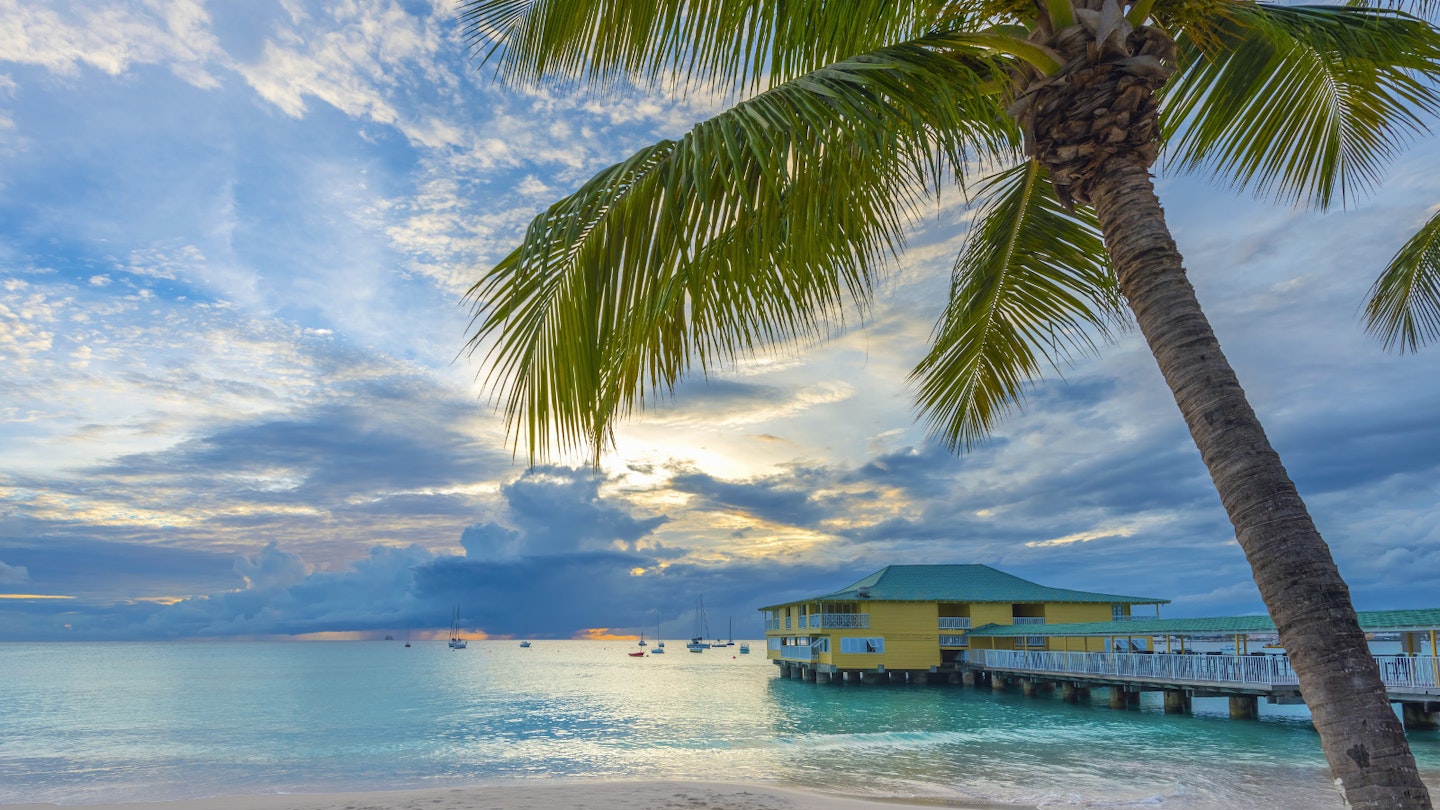From the pirate legends and plantations of the Caribbean to the well-preserved ramparts of Malta’s ancient capital, islands offer plenty for culture hunters to explore in November. Alternatively, there’s always one of Mexico’s most famous festivals: colourful, quirky Día de Muertos (Day of the Dead).
Don your face paint, grab a glass of rum, find your sea legs, and venture into a different world with our travel recommendations for November.
Head to Mexico City for Day of the Dead and a Ghoulish Good Time
This month starts with a bang in Mexico. Día de Muertos (Day of the Dead; 1–2 November) sees families honour their dearly departed by building altars, adorning them with marigolds, candles, sugar skulls, and tequila. In Mexico City, skeleton outfits are de rigueur, and an enormous altar is erected in the main Zócalo square. It’s the quirkiest, most colourful of occasions. However, mountain-ringed Mexico City—one of the world’s largest metropolitan areas—is fun to visit throughout the month. The rains have ended, and temperatures are cool (10–22°C; 50–72°F), making it conducive for exploring the sites of the Centro Histórico: the Palacio Nacional’s Diego Rivera murals, the remains of the Aztec Templo Mayor, and the massive Metropolitan Cathedral. Moreover, Mexico City is fabulously foodie. Take a guided culinary tour through Merced Market, where you can buy almost anything, from candy to chapulines (grasshoppers). Or graze in the neighbourhoods of Cuauhtémoc and Zona Rosa, hopping between stalls selling steamed tamales, tacos filled with frijoles (beans), carnitas (‘little meats’), and fresh tortilla flatbreads.
Trip plan: Tag a few days in the city onto a Caribbean-coast beach break.
Need to know: Benito Juárez airport is 7 miles (11km) east of the city centre.
Through the year: Mar–May: hottest, dry; Jun–Oct: wet; Nov–Feb: cool, dry.
Share Food, Drink, and Good Company on the Island of Barbados
‘Liming’ is the Caribbean word for relaxing while sharing good food, drink, and company. If that sounds appealing, then balmy, boozy Barbados is just the ticket. There’s a beach for everyone: sands are golden yellow, bright white, and rosy pink, lapped by calm seas or pounded by world-class surf. There are glamorous hotels, cliff-top yoga retreats, and family-run guesthouses, acclaimed eateries, and late-night fish fries. And there’s rum—lots of rum. The sugar cane liquor is thought to have originated on Bajan slave plantations in the 17th century and continues to be the local drink of choice. Sipping a shot while watching the sun slide into the turquoise waves is quintessential Barbados. That said, there’s more to the island. The capital Bridgetown’s historic Garrison area is a fascinating detour, while the fertile, undulating interior is flecked with botanic gardens, plantation houses, caves, and ravines. Therefore, visit in November when storms are unlikely but peak season hasn’t begun, to get a cheaper deal.
Trip plan: Pick your spot. The west coast has the calmest waters and most luxurious hotels; the south is more developed; the wild Atlantic-facing east is unspoiled but rougher. Include excursions into the interior.
Need to know: Topless sunbathing is against the law.
Through the year: May–Jun: quieter, stickier; Jul–Oct: wettest, hurricanes possible; Nov: shoulder month; Dec–Apr: dry, busy.
Enjoy the Lingering Warmth and Enduring History of Malta’s Capital
Tiny Malta has a marvellous Mediterranean climate—it’s still toasty warm in November, when much of Europe shivers. Indeed, with temperatures around 21°C (70°F) and seas holding on to the last of the summer’s heat, hitting the beautiful beaches of sister isle Gozo remains viable. However, the mild climes are especially suited to a Valletta city break. Malta’s harbour-hugging capital looks much as it has for 400 years, when it was founded by the Knights of Malta. The baroque palaces, churches, narrow lanes, and robust fortifications are so well-preserved that the city is UNESCO-listed in its entirety, and it was named European Capital of Culture in 2018. For the best overview, head to the Upper Barrakka Gardens. To see Valletta from water-level, sail across the Grand Harbour in a traditional dghajsa (open boat).
Trip plan: Allow a week. Stay in Valletta (perhaps in a converted palazzo) and hire a car. Visit St Paul’s Bay, the Blue Grotto, Marsaxlokk (for great seafood), medieval Mdina, and the Dingli Cliffs. Take the ferry over to Gozo for a peaceful farmstay.
Need to know: The Malta–Gozo ferry takes 25 minutes.
Through the year: May–Jun & Oct–Nov: warm, uncrowded; Jun–Sep: hot, dry, busy; Dec–Apr: chilly.
The Cayman Islands is the Place for Beaches, Bargains, and Buccaneers
Comprising the three islands of Cayman Brac, Grand Cayman, and Little Cayman, this British Overseas Territory is the world’s fifth-largest banking centre. But Cayman isn’t only a haven for wealth—it’s also a wildlife haven. It has more flora species than the Galápagos; a 20,000-strong colony of red-footed boobies; and some remarkable endemics, from the Cayman Brac parrot to the blue iguana. The beaches are beautiful: Grand Cayman’s Seven Mile Beach is great for families and water sports. Head elsewhere, especially to the two smaller isles, and you’ll find white sands without another soul. In November, the rains have largely abated, the temperature is glorious (25–30°C; 77–86°F), and the mid-month Pirates Week (15–17 November 2019) adds a dash of swashbuckling excitement. Moreover, prices are lower before peak season.
Trip plan: Island-hop by plane. Visit Grand Cayman for shopping and boat trips to Stingray City sandbar; Cayman Brac for limestone bat caves and wreck diving; Little Cayman for nesting turtles, beaches, and dives at Bloody Bay Wall.
Need to know: Cayman is 480 miles (770km) south of Miami (70-minute flight).
Through the year: May–Jul: hot, quieter; Aug–Oct: wettest; Nov: cheaper, drier; Dec–Apr: dry, cool, busy.
Article first published September 2017, and last updated September 2019.





